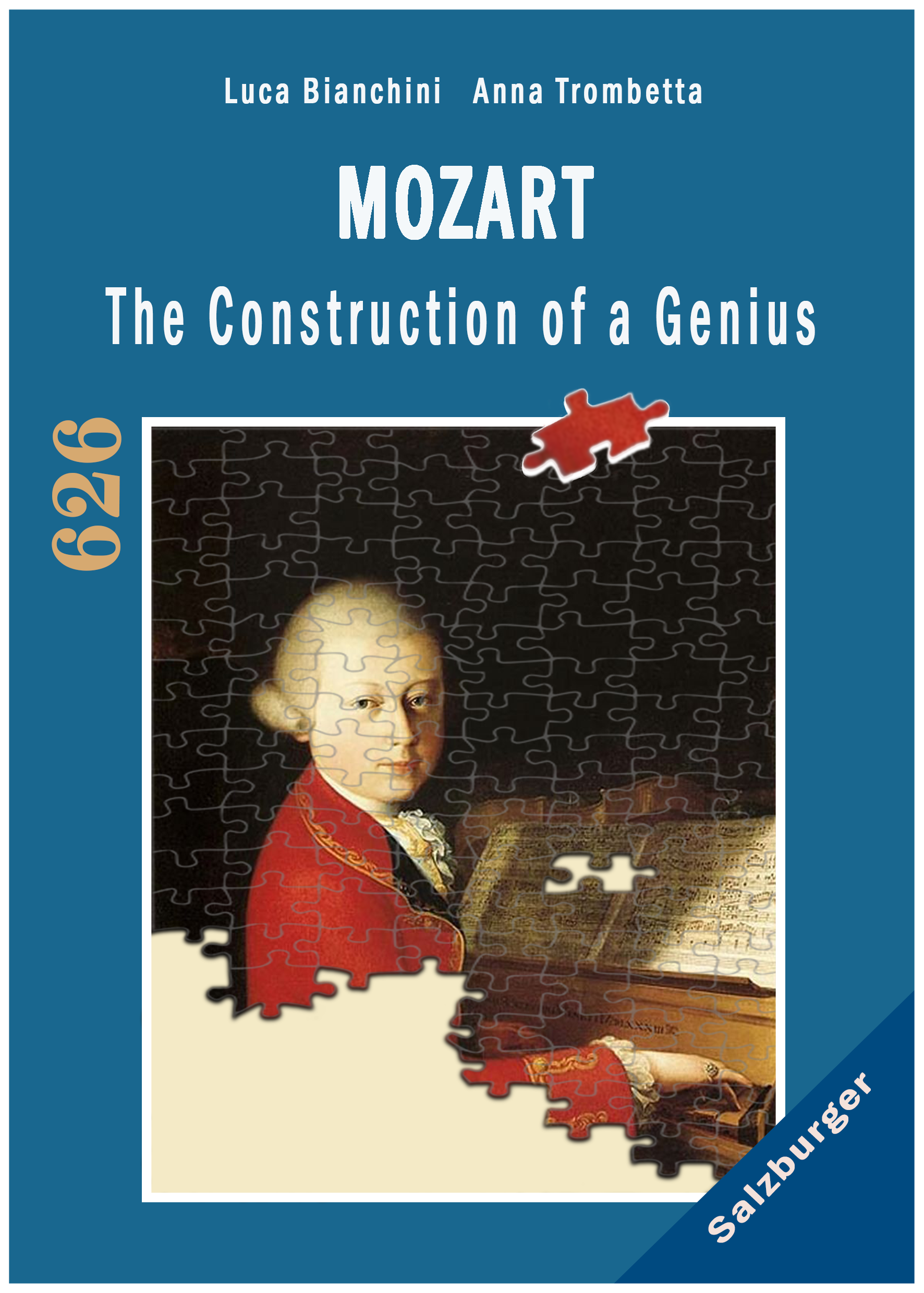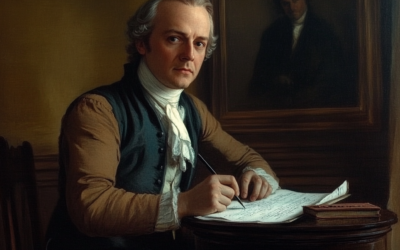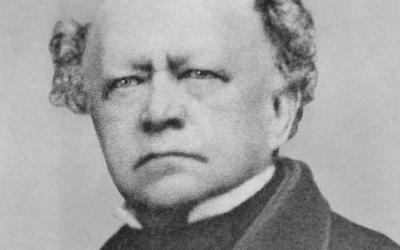Unveiling the Myth
Mozart's Thematic Catalogue Exposed as a Forgery
A groundbreaking forensic analysis reveals that Mozart’s thematic catalogue, long thought to be his own work, is a posthumous forgery. This discovery, detailed in Mozart: The Construction of a Genius, turns centuries of Mozart scholarship on its head, demanding a re-examination of his legacy.
Mozart: The Construction of a Genius
This book offers a fresh and critical look at the life of Wolfgang Amadeus Mozart, challenging the myths that have surrounded him for centuries. We strip away the romanticised image of the “natural genius” and delve into the contradictions within Mozart’s extensive biographies. Backed by nearly 2,000 meticulously sourced citations, this work invites readers to explore a deeper, more complex understanding of Mozart. Perfect for those who wish to question the traditional narrative, this biography is a must-read for serious music lovers and historians.
"The esteemed Mozart’s Thematic Catalogue, spanning 1784 to 1791, is an intricate forgery from the late 18th century."
Mozart: The Construction of a Genius
At the prestigious IGS 2023 Conference in Évora, Portugal, we revealed a bombshell that shakes the foundations of Mozart’s legacy. Our research uncovered that the famous thematic catalogue, long attributed to the composer, is a forgery. Using cutting-edge technology and painstaking forensic handwriting analysis, we have shown that the document was most likely fabricated after Mozart’s death, shattering long-held beliefs about the authenticity of his works.
Mozart’s wife, Constanze, has long been credited with preserving and authenticating this catalogue, yet the document never appeared during Mozart’s life. Only after his death did it emerge, forming the basis for the sales of his unattributed works. This raises significant doubts about Constanze’s role and the narrative surrounding Mozart’s catalogue. As we examine in detail in Mozart: The Construction of a Genius, this catalogue played a crucial part in elevating Mozart’s posthumous reputation, though it is now clear that its authenticity cannot be trusted.
Our bespoke C# software analysed hundreds of characters, comparing the writing in the catalogue with authentic manuscripts and letters from Mozart’s hand. The results were astounding—discrepancies in handwriting, clef shapes, and even the ink used, which was inconsistent with Mozart’s manuscripts. Particularly telling were examples like the word “Bassi,” whose form in the catalogue contrasts starkly with known examples from Mozart’s compositions. The watermarks also provided another clue, revealing connections to documents dated after Mozart’s death in 1791.
This forgery goes beyond simple discrepancies; it alters how we view Mozart’s works catalogued between 1784 and 1791, questioning the legitimacy of many pieces previously believed to be authentic. As explored in our book Mozart: The Construction of a Genius, this discovery raises deeper questions about the image of Mozart that has been manipulated over the centuries for various purposes—ranging from Constanze’s financial gain to nationalistic symbolism and commercialisation of the composer’s legacy.
The scholarly paper A Questionable Catalogue, presented at IGS 2023, corroborates these findings with compelling forensic evidence, adding weight to the notion that the thematic catalogue is not what it appears to be.
This discovery changes everything, forcing scholars to revisit the foundation of Mozart’s legacy. What other elements of the Mozart myth are based on unreliable sources? Our research opens the door to rethinking not just this document but the entire narrative around one of history’s most revered composers.
You May Also Like
The Myth of the “Viennese Classics”: Mozart’s True Heritage and the Empire’s Agenda
Mozart wasn’t the quintessential Viennese; rather, he was shaped by German heritage and an opportunistic empire that controlled music as fiercely as it did its people.
The Nationalistic Roots of the Philharmonic Legacy
Under Goebbels, the Berliner Philharmoniker became an instrument of Nazi propaganda, framing German composers as the supreme guardians of musical heritage.
Australian Scholars Confirm Our Findings on Mozart’s Forged Catalogue
Professor Martin Jarvis of Darwin University confirmed our long-held findings that Mozart’s personal catalogue is a forgery, during his recent lecture The Mozart Scam. Forensic analysis continues to unravel the myths surrounding Mozart’s legacy.
The Italian Journey
The Mozarts’ Italian journey of 1769 was not a leisurely Grand Tour but a strategic mission driven by ambition, navigating the treacherous roads of 18th-century Europe in pursuit of fame and fortune.
Mozart’s Music or Marketing Strategy?
Despite Köchel’s best intentions, his catalogue of Mozart’s works became a commercial tool, filled with questionable pieces added by publishers keen on profit rather than accuracy.
A Revolutionary Encounter at Cremona Musica
Sharing insights on Mozart and the Neapolitan school at Cremona Musica, the premier global stage for music and culture.







